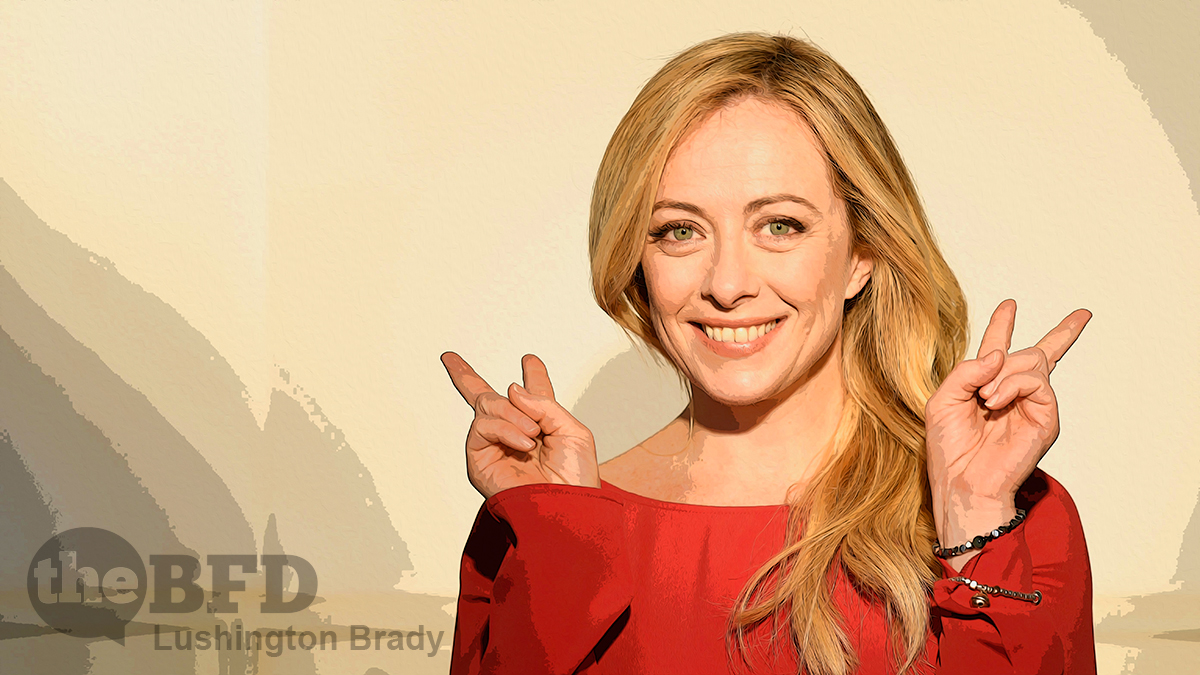Previously, I wrote about the nationalist-populist revolution in Europe. As I explained, it was due to declining trust in the EU and the people’s desire for sovereignty, identity and borders. There is also rising resentment of the globalist liberal world order which attempts to spread freedom and democracy…by removing freedom and overriding democracy.
This is due to a clash of civilisations in which the globalist vision and the nationalist vision are at odds with each other. Globalists view the world in terms of an international society in which everyone can get along by having the same values. Nationalists want to preserve their culture and their identity. Without culture and identity, there is nothing worth living for, no purpose in life and nothing to stand or fight for.
So it was with great joy that I saw the mainstream media panicking over the rise of the ‘far right fascists’ who had won in Sweden and Italy. The Swedish Democrats and the Brothers of Italy had both got the majority of votes in their respective elections. I had to chuckle at the comparisons of the first female Italian prime minister to Benito Mussolini. The mainstream media seem to have historical amnesia about the history of Fascism and about Benito Mussolini.
Fascism was an idea first invented by Italian socialist Giovanni Gentile because he realised the working classes were still patriotic. Therefore class warfare could only be achieved by convincing the working classes that it was in the national interest. This is what led Benito Mussolini to leave the Italian Communist Party and form the Italian Fascist movement.
What is also entertaining is how the academic class have called this part of the rise of neo-fascism in Europe. Fascism itself seems to have been pushed to the right despite its main tenets: central planning and public ownership of everything, which are left-wing. The big lie pushed by the Frankfurt school of critical thinkers is the claim that Nazism and Fascism are both right-wing.
So why the panic? It is because the liberal globalist view of democracy and freedom is being challenged for the first time.
The political establishment is waking up to the fact that the people of Europe have rejected their ideas.
It was very telling, the way that they tried to keep holding referendums with the promise that the outcome would be fair. It was very telling when a woman from the European Union claimed to have “tools that could be used to deal with these types of people” in response to a question about the election of Giorgia Meloni.
As I have explained in previous articles, the European nations are moving more and more away from the liberal global world order, which pushes values that clash with European traditional values, and back to a community of nations that respect each other’s sovereignty and self-determination. Something some of the elites have suddenly adopted after the Russian invasion of Ukraine.
European nations no longer want to be ruled by an elite that tells them that the traditions and values they hold dear are archaic and outdated.
They are not happy at the elite doing everything they can (including withdrawal of funding) to make their changes – even if it includes interfering in elections or referendums by using NATO and EU rules.
What the liberal globalists (who see territories as a cause of conflict) are aiming for, is something called “deterritorialisation” – in which boundaries are redefined and altered in such a way that borders no longer exist.
Along with that is the idea that if people had the same values there would be peace and harmony. This conflicts with the nationalist populist idea that, despite their differences, nations are willing to respect each other.
The nationalist-populist idea could also be understood as an extension of private property rights in which individuals and therefore communities can live their lives without judgement or harassment. And it is this idea that is under attack.
It is also important to note that identity is an important part of a people. We all have an identity. And everyone wants to preserve that identity. Even the left value identity: hence their identity politics and intersectionality.
Is it too much to ask to allow the people of Europe to celebrate and protect that? Identity gives a purpose and meaning to life which is perhaps why more and more European youth are joining identitarian movements.
So how should New Zealand respond to this new Europe? We must stop seeing these countries as members of Europe or of the liberal international order. We must see them as individual countries.
We must deal and interact with each nation as an individual country, respecting their heritage, sovereignty and their right to make their own choices.
We must not judge them for the choices their government and society make. As the atheist community would say, “Don’t push your morality on me.” We must realise that each nation has its own unique identity.
I would argue that our trade relations must be developed with each individual country rather than the vague entity we call ‘Europe’. I would also argue that we must respect each country’s attempts to preserve its identity.
We must find common ground as it is obvious that Europe is changing and consequently we must change the way we deal with Europe.

